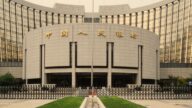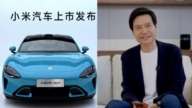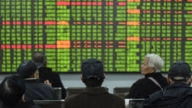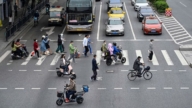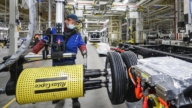【新唐人2013年07月23日訊】中國經濟減速,是最近這週最受關注的經濟新聞之一,再次引發了人們關注所謂的「中國模式」和中國的經濟前景。中共幾十年來採取的「中國模式」經濟,帶來嚴重問題,讓中國經濟處於轉型的困境。而另一方面,「中國模式」中的因素,又在阻礙著這種轉型。
國際貨幣基金組織(IMF),17號發佈了有關中國經濟的年度評估報告。報告警告說,中國實施經濟改革已到了刻不容緩的地步。IMF並指出,中國現有的增長模式是「不可持續的,而且正在製造脆弱性」。
目前為止,中共所採用的所謂「中國模式」,是每當宏觀經濟出現問題時,威權主義的強勢政府動員資源,海量的投入去救市。例如2009年的4萬億投資、10萬億貸款,把GDP增長率拉到8%以上。
不過「投資依賴」和「政府強勢」,也正是所謂「中國模式」備受經濟學者批評的兩個痼疾。
中國國內的經濟學家吳敬璉,曾多次抨擊「投資依賴」模式的弊病。他指出,粗放增長在宏觀經濟層面造成的問題,是貨幣超發、債務積纍,最後導致宏觀經濟波動和增長減速。然而政府反覆使用這種模式,使得問題越來越嚴重,以至於現在中國維持人類生命的空氣、水和土壤都發生了問題。
另外,對於「政府強勢」的抨擊,海外的經濟學者則更加直白。
美國南卡羅萊納大學艾肯商學院教授謝田﹕「中國的經濟發展,如果說它有一種所謂的模式的話,它就是在一種高度的壟斷和集權,加上暴力的專制,然後再加上資本主義原始的血腥。」
如果說在計劃經濟年代,中共控制經濟導致了全民共同貧窮,那麼在「六四事件」之後,為了延續岌岌可危的政權,中共在經濟方面不得不做出的放寬,則催生了「社會主義市場經濟」這個「四不像」的體制。
謝田﹕「中共,它又實行了市場經濟,或所謂的走向資本主義經濟化,開放了企業發展市場的路。但是它同時又保留了政治上的殭化,沒有允許公平的競爭,自由的選舉,和獨立的媒體的出現。」
中共當局在許多領域直接參與了市場經營活動,一些壟斷性的國有企業嚴重扭曲了市場價格和市場秩序。這一模式運行至今,中國的貧富差距達到了世界之最,官員權貴積纍資本,大量外逃,而百姓卻為基本的醫療,教育,住房等問題所困。同時,為了維持經濟發展的數據,中國人還付出了無法計算的道德成本,和環境成本。
目前,「中國模式」幾乎已經耗盡了中國的生產能力。國內外許多觀察家都認為,中國經濟增長將大幅度減緩,前景不容樂觀。
近期「高盛集團」投資管理部發表報告分析,中國目前投資佔GDP的比重過高且不可持續,已然超越了上世紀50年代末「大躍進」年代、以及90年代初投資過熱時期。投資和GDP的比率早該下調,現已經逾期。
中國金融智庫研究員 鞏勝利﹕「這種投資啊,最麻煩的就是中國沒有遊戲規則,也沒有可持續的法律環境。」
而「政府強勢」的模式,也被認為將進一步加劇中國社會矛盾。
謝田:「因為共產黨的官員他是不會停止他的步伐的。並且,只要他的貪心沒有法律上的限制,並且他也意識到中共即將要滅亡,他不但不會放緩,他會加劇—-貧富懸殊,貧富分化繼續加劇。老百姓的承受能力,和忍耐能力都是有限的。」
在「中國模式」走到臨界點後,中共試圖推動經濟從「投資」轉向「消費拉動型」模式。不過IMF在報告中表示,這一決定性轉變「尚未發生」。
同時,儘管中共當局必須將「投資」轉向「消費」,但銀行卻繼續貸款給企業而不給個人。法國市場研究人員分析,這是因為中國的經濟由中央控制,而政權十分腐敗造成的。
採訪/劉惠 編輯/尚燕 後製/肖顏
Economic Slowdown Shows “China Model" is Unsustainable
The economic slowdown in China has been
a focus of economic news this past week.
It again sparked concerns over the so-called “China model"
and China’s economic prospects.
The Chinese Communist Party (CCP)’s use of the
“China model" in the past few decades has led to serious issues,
forcing great difficulty upon China’s economic transition.
Additionally, factors within the “China model" itself
further impede this transition.
On July 17, the International Monetary Fund (IMF) published
its annual assessment report on China’s economy.
The report warns that China’s economic reforms
have come to a critical state.
The IMF also pointed out that China’s current economic
growth model is “not sustainable, and is creating vulnerability."
So far, the CCP has adopted the so-called “China model"
whenever there are macroeconomic problems.
It’s heavy handed authoritarian regime mobilizes resources
and invests massively to save the market.
For example, the 4 trillion yuan ($651 billion) investment
and the 10 trillion yuan ($1.6 trillion) loans in 2009 that
pulled the GDP growth rate to above 8%.
However, economists say “investment dependency" and
“Strong government” are two key problems of the so-called “China model”
Chinese economist Wu Jinglian has repeatedly criticized
the shortcomings of “investment dependency."
He says that extensive growth at the macroeconomic level
causes over issuing of money and debt accumulation,
which lead to macroeconomic volatility and growth slowdown.
However, the regime’s repeated use of this model makes
problems more serious.
It’s to the extent that now China even has trouble sustaining
human life, with problems arising with the air, water and soil.
Overseas economists are more straightforward to the
“Strong Government" aspect of the “China Model.”
Professor Xie Tian, University of South Carolina
Aiken School of Business: “If we say China’s economic
development follows a type of so-called model,
then it is one of extreme monopoly and centralized power,
combined with violent tyranny and primitive bloody capitalism."
If in the planned and controlled economy era,
the CCP’s control of the economy caused overall poverty,
then after the “June Fourth Incident" the CCP had to open up
its policy on economics to extend its precarious regime,
thus, it created a “Socialist Market Economy,"
which is neither fish nor fowl.
Xie Tian: “The CCP both implemented a market economy,
or the made its so-called move towards a capitalist economy,
and opened markets for enterprise developments.
But it also retained its political rigidity,
and didn’t allow fair competition, free elections,
and the emergence of independent media."
The Chinese authorities are directly involved in
many areas of market operations.
Some monopolistic state-owned enterprises seriously
distort market prices and market orders.
China’s current wealth gap is the world’s highest.
Officials and the powerful accumulate capital and run overseas.
People are frustrated with basic issues such as
health, education and housing.
Meanwhile, in order to sustain economic growth, China’s
people pay the price in terms of morality and the environment.
Currently, the “China model" has almost exhausted
the China’s production capacity.
Many domestic and foreign observers say that
China’s economic growth will slow down significantly.
The outlook is not optimistic.
Goldman Sachs investment management department
recently issued a report saying that
China’s current investment over GDP is too high and
unsustainable, already exceeding
that of the “Great Leap Forward" era of the 1950s
and the overheated investment period in the 1990s.
The time to lower investment and
the GDP ratio has also passed.
Gong Shengli, researcher at China’s financial think-tank:
“The most troublesome aspect of investment is that
China has no game rules, nor a sustainable legal environment."
The “Strong Government" model is also considered
to further escalate social conflicts.
Xie Tian: “The CCP officials would not stop their pace.
As long as there is no legal restrictions to their greed,
and with them also realizing that the CCP is about to perish,
they will not slow down and even hurry up.
Disparity of wealth between rich and poor will only get worse.
Meanwhile people’s endurance capabilities are limited."
When the “China Model" is at the edge, the CCP tries to shift
from the “Investment Model” to the “Consumer-Driven Model.”
But the IMF said in it’s report, this shift “has not yet occurred."
Meanwhile, despite the need for CCP authorities to shift from
the “Investment Model” to the “Consumer-Driven Model,”
banks continue to lend to companies instead of individuals.
French market researchers analyzed that this is because
China’s economy is controlled by a corrupt central government.


